Skin
Is Skin Care Essential for Health and Well-Being?

Is Skin Care Essential for Health and Well-Being? Yes, Skin care has evolved into a popular and necessary part of modern self-care. From cleansers and moisturizers to serums and sunscreens, it’s clear that skin care is much more than just a beauty trend. But what exactly does it involve, and why is it important? This article explores the significance of skin care, its role in overall health, and the ways it can improve your skin’s appearance and function. We’ll also address common questions, misconceptions, and best practices for building a solid routine.
Understanding Skin Care: More Than Just Cosmetics
Skin care isn’t just about enhancing beauty. It’s about maintaining the health and functionality of your skin, the body’s largest organ. The skin protects us from environmental harm, regulates temperature, and allows us to sense touch. Therefore, proper care is essential for preserving these vital functions.
When people ask, “Is skin care important?” the answer is unequivocally yes. Like any other part of your body, your skin needs attention and maintenance to stay healthy. Without proper care, it can become dry, irritated, or vulnerable to infections and damage. Even though some may view skin care as purely aesthetic, it plays a crucial role in your overall health.
The Basics of Skin Care
At its core, skin care involves practices that help maintain skin health and appearance. A good skin care routine addresses several key elements, including:
- Cleansing: Removing dirt, oil, and pollutants from the skin.
- Moisturizing: Hydrating and maintaining the skin’s moisture barrier.
- Protecting: Using sunscreen or other barriers to shield the skin from harmful UV rays and environmental damage.
Cleansing helps prevent clogged pores, which can lead to breakouts. Moisturizing keeps the skin hydrated, reducing dryness and irritation. And perhaps most importantly, protecting your skin from UV damage prevents premature aging and decreases the risk of skin cancer. Together, these steps form the foundation of any effective skin care routine.
The Science Behind Skin Care
The skin is a complex organ made up of multiple layers, each with specific functions. The outermost layer, the epidermis, serves as a protective barrier. The dermis, located beneath the epidermis, houses blood vessels, hair follicles, and sweat glands. Beneath that lies the hypodermis, which contains fat and connective tissue.
Proper skin care targets these layers to ensure that the skin can perform its functions optimally. For example, moisturizers often penetrate the outer layer to hydrate the skin, while sunscreen shields the epidermis from harmful UV rays. Anti-aging serums may target the deeper layers, stimulating collagen production to reduce fine lines and wrinkles.
When you invest in skin care, you’re not just pampering yourself—you’re addressing the biological needs of your skin. Consistent care can improve elasticity, reduce signs of aging, and even improve skin tone and texture.
Is Skin Care Necessary for Everyone?
Many people wonder if skin care is necessary for everyone, or if it’s only for those with problem skin. The truth is, skin care benefits everyone, regardless of age or skin type. Each person’s skin has unique needs, and a tailored skin care routine helps meet those specific requirements.
Even individuals with “perfect” skin can benefit from a consistent regimen. Over time, factors like sun exposure, pollution, and natural aging can affect your skin’s health. By taking preventive measures—such as using sunscreen and maintaining hydration—you can keep your skin healthy and vibrant for years to come.
Additionally, those with specific skin concerns, like acne or eczema, can benefit greatly from a routine designed to target those issues. For example, people with acne-prone skin often find relief from using cleansers with salicylic acid or benzoyl peroxide. Meanwhile, those with dry skin may need heavier moisturizers containing ingredients like hyaluronic acid or glycerin.
How Skin Care Affects Mental Health
Skin care doesn’t just benefit your physical health—it can also have a significant impact on mental well-being. A consistent routine can be soothing, offering a sense of control and stability in daily life. For many, the act of cleansing or applying moisturizer is a form of self-care that fosters mindfulness and relaxation.
Additionally, having healthy, clear skin can boost self-esteem. Skin conditions like acne, rosacea, or hyperpigmentation can affect a person’s confidence and body image. Addressing these issues with proper care can lead to improvements not just in appearance but in mental outlook as well.
Feeling good about how you look can enhance your overall quality of life. A glowing complexion often translates into increased confidence, making you feel more comfortable in social and professional settings. As a result, investing in skin care can have far-reaching effects beyond just the physical.
Common Skin Care Myths Debunked
Despite the benefits of skin care, there are plenty of myths that confuse people about what’s necessary and effective. Let’s debunk some of the most common misconceptions:
- “You only need sunscreen on sunny days.”
This is one of the biggest myths. UV rays can penetrate clouds, meaning your skin is exposed to harmful rays even on cloudy or cold days. Sunscreen should be part of your daily routine, regardless of the weather. - “Oily skin doesn’t need moisturizer.”
This couldn’t be further from the truth. Oily skin can still be dehydrated, and when the skin lacks moisture, it may produce even more oil to compensate. Using an oil-free moisturizer can help maintain balance. - “Natural products are always better.”
Just because something is labeled “natural” doesn’t necessarily mean it’s better for your skin. In fact, many natural ingredients can irritate sensitive skin. It’s important to choose products based on your skin’s specific needs, not just marketing labels. - “Expensive products work better.”
Price doesn’t always indicate effectiveness. Many affordable skin care products offer the same benefits as their high-end counterparts. It’s essential to focus on ingredients rather than price tags.
By understanding the facts and ignoring the myths, you can develop a skin care routine that truly works for you.
Is Skin Care Anti-Aging?
One of the most common reasons people invest in skin care is to slow the signs of aging. While aging is a natural process, proper skin care can help minimize its visible effects. Products with antioxidants, such as vitamin C and retinol, help combat free radicals that contribute to premature aging. Retinoids, in particular, are known for their ability to promote cell turnover, reducing the appearance of fine lines and wrinkles.
In addition to topical treatments, daily sun protection is perhaps the most effective anti-aging step you can take. UV damage is a leading cause of premature aging, often referred to as photoaging. By wearing sunscreen consistently, you can prevent sunspots, wrinkles, and loss of elasticity over time.
So, is skin care anti-aging? It can’t stop the clock, but it can certainly slow it down.
Creating a Skin Care Routine: Where to Start
Starting a skin care routine can feel overwhelming, especially with so many products on the market. The key is to keep it simple at first and gradually introduce more products as needed. Here’s a basic routine to get started:
- Cleanser: Choose a gentle cleanser that suits your skin type. Wash your face morning and night to remove dirt, oil, and impurities.
- Moisturizer: Apply a hydrating moisturizer immediately after cleansing to lock in moisture.
- Sunscreen: Wear sunscreen daily, even indoors, to protect your skin from harmful UV rays. Opt for SPF 30 or higher.
Once you’ve established a basic routine, you can add serums or treatments based on your skin’s needs. For example, if you struggle with dark spots, a vitamin C serum might help. If your main concern is wrinkles, consider incorporating retinol.
Remember, consistency is key. It’s better to stick with a simple routine every day than to try too many products at once and risk irritation.
Adapting Skin Care to Your Environment
Your skin care needs may change depending on factors such as climate, age, and lifestyle. For example, colder weather often leads to drier skin, requiring richer moisturizers and hydrating serums. On the other hand, warmer, humid climates might necessitate lighter, oil-free products to prevent clogged pores and excess oil.
Traveling can also impact your skin. Airplane travel, for example, dehydrates the skin due to the dry cabin air. In such cases, using a hydrating mist or sheet mask mid-flight can help maintain moisture levels.
It’s essential to be flexible with your routine and adapt it based on your environment. Pay attention to how your skin reacts and adjust accordingly.
The Role of Diet and Hydration in Skin Care
While skin care products are important, what you put into your body also plays a significant role in your skin’s health. A balanced diet rich in vitamins and minerals can enhance your skin’s appearance. Nutrients like omega-3 fatty acids, found in fish and flaxseed, help maintain the skin’s lipid barrier, keeping it hydrated and supple.
Hydration is equally important. Drinking plenty of water ensures that your skin stays moisturized from the inside out. Dehydration can lead to dullness, fine lines, and flaky skin. By staying hydrated and eating a balanced diet, you’ll boost the effectiveness of your skin care routine.
Conclusion: Is Skin Care Worth the Effort?
In short, yes—skin care is essential for maintaining healthy, vibrant skin. Beyond its aesthetic benefits, skin care helps protect the skin from environmental damage, supports its natural functions, and improves overall well-being. Whether you’re looking to address specific concerns like acne or wrinkles or simply want to maintain a healthy complexion, investing in skin care is a worthwhile endeavor.
By understanding your skin’s needs and sticking to a routine that works for you, you’ll not only look good but feel good too. After all, healthy skin is a reflection of self-care—and that’s something worth prioritizing.
FAQs
Is skin care necessary for everyone?
- Yes, skin care benefits everyone, regardless of skin type or age. A proper routine supports skin health and prevents issues.
How often should I use sunscreen?
- Sunscreen should be worn every day, even when it’s cloudy or you’re indoors. UV rays can still penetrate clouds and windows.
Can skin care products reverse aging?
- Skin care can’t reverse aging, but it can slow the visible signs like wrinkles and sunspots when used consistently.
Are expensive skin care products better than affordable ones?
- Not necessarily. Focus on ingredients rather than price, as many affordable products are just as effective.
What diet changes can improve my skin?
- A diet rich in omega-3 fatty acids, vitamins, and hydration can help support skin health from the inside.
How long does it take to see results from a skin care routine?
- Results vary, but you can typically expect improvements within four to six weeks of consistent use.
Skin
Can Dietary Choices Influence Skin Pigmentation?

The adage “you are what you eat” holds a surprising veracity when considering the vitality and hue of your skin. While factors like heredity, lifestyle, and skincare regimens undeniably shape your dermal health, the food you consume wields its unique influence. Certain edibles can accentuate or subtly shift your natural complexion, lending it a luminous radiance or, conversely, prompting discoloration. But to what extent can nutrition modify skin pigmentation? Let’s delve into the scientific intricacies of this captivating connection.
Carotenoids: Nature’s Pigment Architects
Carotenoids, organic pigments residing in produce like carrots, spinach, sweet potatoes, and tomatoes, are responsible for their vivid yellow, orange, and red tones. Upon ingestion, these pigments are stored within the skin’s outermost layer, imbuing it with a sunlit, golden hue. This phenomenon, often termed “carotenoid-induced skin coloration,” exemplifies how diet directly interacts with dermal appearance.
Research substantiates that individuals who incorporate carotenoid-rich provisions into their meals often exhibit a healthier, more alluring skin tone. However, this effect is transient, dissipating once the consumption of such nutrient-dense foods declines.
Beta-Carotene and Its Surprising Effects
A prominent member of the carotenoid family, beta-carotene, is particularly adept at altering skin tone. Found in abundance in pumpkins, carrots, and yams, this compound can accumulate in the skin with excessive consumption, leading to a condition known as carotenemia. This temporary and benign state renders the skin a yellowish-orange tint, a striking testament to how dietary elements manifest visibly.

Hydration: The Unsung Hero of Skin Vitality
While water itself doesn’t transform pigmentation, it remains indispensable for preserving skin suppleness and averting dryness. Adequate hydration amplifies your skin’s natural brilliance, making it appear dewy and invigorated. In essence, water functions as a silent enhancer of your dermal luminosity.
Antioxidants: Guardians of Radiance
Foods imbued with antioxidants—like berries, green tea, and walnuts—fortify your skin by neutralizing harmful free radicals that damage cells and incite pigmentation irregularities. Regular consumption of these nutrient powerhouses fosters an even, radiant skin tone, underscoring the protective synergy between diet and dermal health.
Culinary Culprits Behind Discoloration
Not all dietary choices illuminate the skin. Certain foods detract from its vitality:
- Processed Sugars and Snacks: Excessive intake inflames the body, manifesting as redness, blemishes, and lackluster skin.
- High Sodium Content: Overindulgence in salt dehydrates the body, leaving the skin pallid and fatigued.
- Allergy-Inducing Foods: For some, food sensitivities can provoke rashes, discoloration, or uneven pigmentation.

Cultural Perspectives on Diet and Skin Brilliance
Across global cultures, dietary customs play an integral role in nurturing skin radiance.
- South Asia: Turmeric, revered for its anti-inflammatory prowess, is a culinary cornerstone for enhancing skin clarity.
- East Asia: Green tea is cherished for fostering an ethereal, even-toned complexion.
- Mediterranean Region: Olive oil and nuts, staples of this diet, are lauded for promoting glowing, youthful skin.
Can Food Permanently Transform Skin Tone?
Despite its temporary influence, food cannot permanently alter melanin levels—the pigment dictating your natural skin color. Genetic coding and sun exposure govern melanin production, limiting the extent to which diet alone can modify pigmentation.

Culinary Tips for Radiant Skin
For a diet that enhances skin health and luminosity, consider these recommendations:
- Vibrant Produce: Infuse your meals with fruits and vegetables brimming with carotenoids and antioxidants.
- Omega-Rich Fish: Fatty fish like salmon deliver essential lipids that hydrate and soothe skin.
- Vitamin E Sources: Nuts and seeds shield skin cells from oxidative stress.
- Whole Grains: Support dermal repair with nutrient-dense grains.
Conclusion:
While dietary choices cannot override genetics, they play an undeniable role in amplifying your skin’s texture, tone, and radiance. By mindfully selecting nutrient-rich foods, you can embrace a complexion that reflects health and vitality. Remember, the nourishment on your plate is mirrored in your skin—so let it glow with wholesome intention.
Skin
Natural Face Moisturizers for Rosacea: Reviews & Buyers Guide
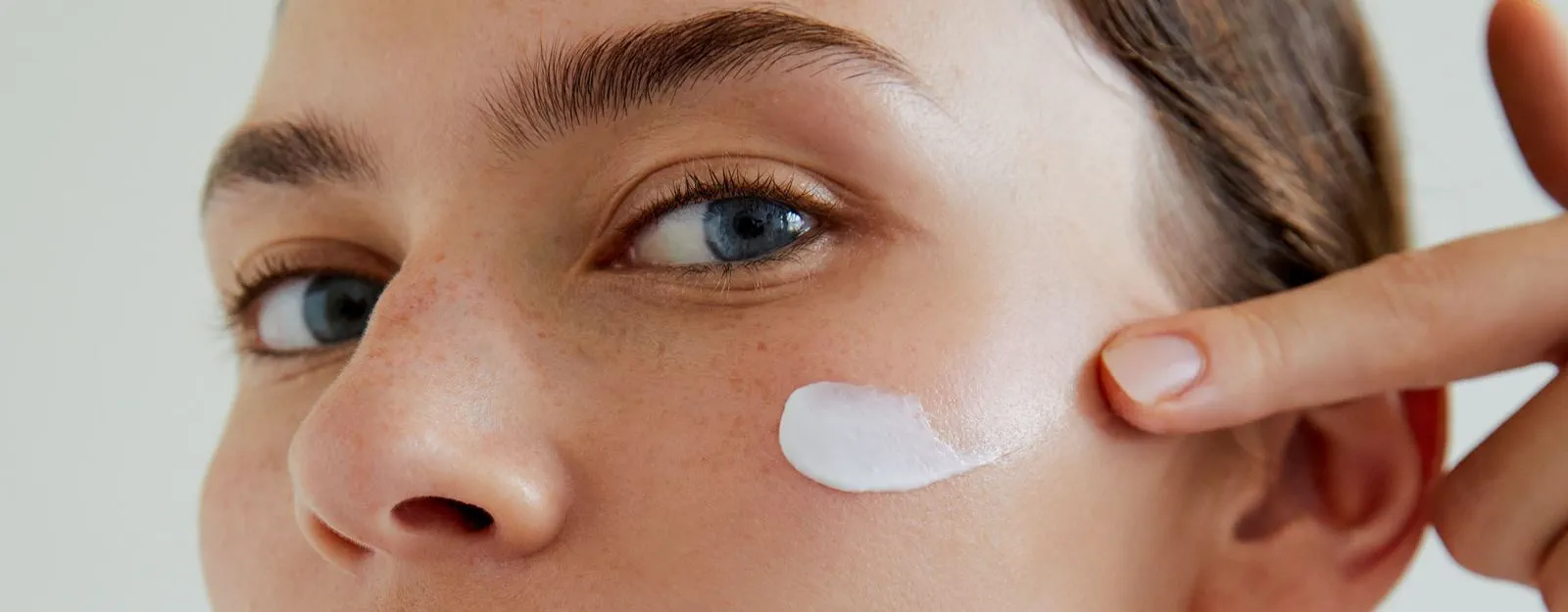
Table of Contents
Tips on Choosing the Right Moisturizer For Your Skin
Advantages of Using a Natural Face Moisturizer
1. These creams can help to reduce wrinkles:
2. Moisturizers are ideal for your skin:
3. The oils protect your skin:
4. The creams shrink enlarged pores:
5. The moisturizers down rashes:
What to Consider When Looking for Moisturizers for Rosacea
Best face wash and moisturizer for rosacea: Moisturizing your skin is a great way to protect your skin when treating rosacea. Some natural face moisturizers offer protection against environmental factors that exacerbate rosacea symptoms.
Before you settle on a moisturizer, read this review carefully, and always talk to your dermatologist.
- Avoid moisturizers that have too many fragrances. You should also avoid harsh cleansers, or any products that contain alcohol as they may contribute to rosacea outbreaks.
- Watch out for rosacea irritants found in different skin care products. They include alcohol, fragrance, Hazel, eucalyptus oil, peppermint and menthol. Other things you want to avoid include exfoliating agents, astringents and anything else that’s harsh for sensitive skin.
- Test any product on a peripheral area before you apply it on your skin. That will help you avoid any product that you react to and take note of the ingredients. Rosacea irritants vary from person to person, and your skin’s reaction should be your guide.
Mistakes to Avoid When Applying Moisturizers
Over-saturating your skin
Rubbing the skin too hard
Not allowing the cream to sink in
Forgetting the area under the eyes
Forgetting the neck area
What you Should Know Before Using Moisturizer for Rosacea
1. Premature wrinkles:
2. Your complexion may be dull and flaky:
3. Your layer of protection may become lost:
4. Your skin may become itchy:
Read the Label
Sensitive skin
Bland moisturizers
Best face wash and moisturizer for rosacea: These moisturizers are free from harsh ingredients that irritate the skin. You want to avoid anything that can trigger a flare-up. Avoid using moisturizers that have redundant components. The best products alleviate your skin’s dryness. Avoid moisturizers with alcohol, fragrances and related additives.
Avoid acne treatment products
Regardless of whether your rosacea is accompanied with pimples, it is not advisable to use moisturizers formulated for treating acne. They have ingredients such as benzoyl peroxide and salicylic acid that can dry your skin. Consult a dermatologist for the best way to treat acne while dealing with rosacea.
Calming ingredients
Try using moisturizers that have a calming effect on your skin to reduce the symptoms of rosacea. Chamomile, aloe and green tea are natural products that have a soothing effect. That will help to lessen the redness and inflammation you could be experiencing.
Sunscreen
Exposure to the sun is a known trigger for rosacea flare ups. Choose a moisturizer with an SPF 15 protection or higher or stay covered!
5 of the Best Moisturizers for Relieving Rosacea Reviewed
1. Miravage Facial Redness and Rosacea Relief Cream & Anti-Aging Moisturizer Serum
PROS
- You can wear it under your makeup
- Offers anti-aging benefits
- There is no greasy feeling
- Quickly absorbed into your skin
CONS
- Has a light scent that lingers
2. Era Organics Face Cream
PROS
- 60-day money back guarantee
- Non-greasy formula
- Has anti-aging properties
CONS
- Can be a bit expensive
3. Aveeno Eczema Therapy Moisturizing Cream
PROS
- Recommended by dermatologists
- Fast acting formula that hydrates and soothes
- Steroid and fragrance free
- Reasonably priced
- Great packaging for easy use
CONS
- Relatively thick formula feels heavy during application
4. HoneySkin Organics Aloe Vera Ultimate Face and Body Cream
PROS
- Organic product
- Doesn’t have fillers like mineral oils, parabens or water
- Light non-greasy formula
- No fragrance
CONS
- A little bit costly
- Few people are allergic to some ingredients
5. La Roche-Posay Soothing Moisturizer
PROS
- Fragrance free
- Reduces chances of skin dryness
- Easy to apply light texture
CONS
- It is relatively expensive
Conclusion
Dermatologists still have a long way to go about rosacea. Scientists are still learning what its real causes are and the best way to treat it. While there may be some genetic factors, the environment has a big contribution as well. There are different underlying factors causing rosacea. People battling it should make choices that eliminate the risk of outbreaks. Take note that your diet can trigger rosacea flare-ups. You want to avoid spicy foods, hot foods and drinks, and alcoholic beverages. But a moisturizer designed for those suffering from rosacea can help for some. As per the review, the Honeyskin Face & Body Cream stands out to me as the best moisturizer for rosacea here. Just remember that everyone’s skin reacts differently. Trial & error and speaking to your dermatologist are a couple of ways you can figure out which cream will work for your skin.
Skin
Neutrogena Nordic Berry Lip Balm
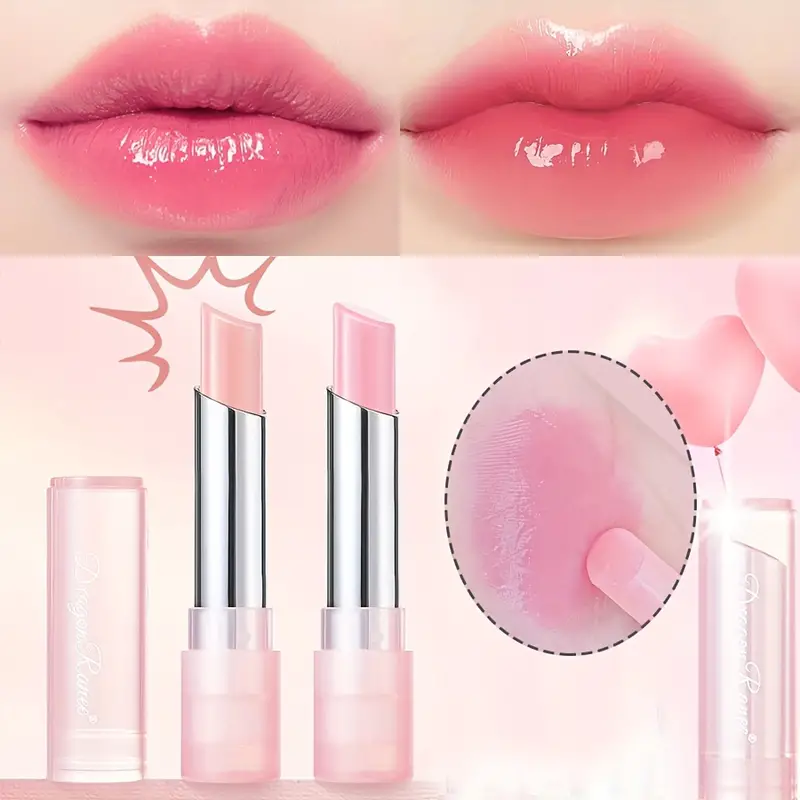
For those who prize meticulous lip care, the Neutrogena Nordic Berry Lip Balm emerges as a singular gem. Revered for its remarkable capacity to nurture, rejuvenate, and shield lips from the merciless grip of environmental extremities, this balm epitomizes the harmony of scientific innovation and nature’s bounty. Drawing inspiration from the nutrient-laden Nordic berry, it offers an exquisite confluence of advanced dermatological craftsmanship and organically sourced constituents. Below, we explore why this product claims a venerated spot among lip care connoisseurs globally.

Why Neutrogena Nordic Berry Lip Balm Stands Apart
This isn’t just another run-of-the-mill lip balm—it’s an intricate symphony of potent natural extracts and cutting-edge dermatological precision. Key attributes include:
- Infusion of Nordic Berry Extracts: These berries, abundant in antioxidants and vital nutrients, neutralize free radicals and infuse lips with deep hydration.
- Dermatologist-Endorsed Integrity: Clinically validated for its mildness, this balm suits even the most delicate lips.
- Enduring Moisturization: In contrast to the fleeting hydration offered by many alternatives, this balm ensures extended softness and resilience.
Dissecting the Key Ingredients
Nordic Berry Extract
As the core essence of this formulation, Nordic berry extract delivers unparalleled skin-enhancing benefits. Rich in vitamins C and E, it fortifies against environmental adversities while restoring suppleness.
Glycerin
Esteemed as a humectant, glycerin magnetizes moisture, safeguarding lips against aridity.
Panthenol (Pro-Vitamin B5)
Renowned for its reparative prowess, panthenol alleviates discomfort caused by cracked or inflamed lips, promoting swift recovery.
Shea Butter
This natural emollient cocoons the lips in a barrier of hydration, thwarting damage from icy winds and relentless heat.

Advantages of Using Neutrogena Nordic Berry Lip Balm
- Profound Moisture
This balm obliterates dryness, leaving lips velvety smooth. Its humectant-emollient blend delivers moisture unparalleled in longevity. - Defensive Antioxidants
Empowered by Nordic berry extract, the balm shields lips from oxidative stress, protecting against UV rays and pollution. - Extended Wear Time
Unlike its peers, this balm minimizes the need for frequent applications, offering sustained comfort throughout the day. - Luxurious Texture and Subtle Scent
Its silken consistency glides effortlessly across lips, while the faint aroma of Nordic berries provides a delightful sensory experience. - Adaptability Across Seasons
From frosty winters to sweltering summers, this balm is indispensable for year-round lip care.
Optimal Usage for Maximum Benefit
To harness the full potential of Neutrogena Nordic Berry Lip Balm, consider the following regimen:
- Gentle Exfoliation: Slough away dead skin cells with a mild lip scrub.
- Generous Application: Evenly coat your lips for comprehensive hydration.
- Reapplication Protocol: While its longevity is noteworthy, reapply after meals or exposure to severe conditions.
- Pairing with Lip Masks: For intense care, combine it with an overnight lip treatment.

A Comparative Glance
Positioned ahead of its competitors, Neutrogena Nordic Berry Lip Balm prioritizes the root causes of lip distress. Unlike generic alternatives offering superficial relief, this balm provides enduring solutions through its innovative blend of natural antioxidants and hydrating agents.
What Distinguishes It:
- Pure Ingredients: Free from irritants like parabens and synthetic fragrances.
- Expert Recommendations: Favored by dermatologists for its hypoallergenic attributes.
- Affordable Luxury: Top-tier efficacy without an exorbitant price.
Dermatological Advocacy
Esteemed by skin experts, Neutrogena Nordic Berry Lip Balm consistently proves its mettle. Its hypoallergenic composition and reparative properties make it suitable for all age groups, including children, ensuring lips remain protected and resilient.
The Ideal Candidate for This Balm
This balm caters to a wide audience:
- Chronic Dryness: An elixir for persistently parched lips.
- Extreme Climates: A fortress against severe cold, wind, and UV exposure.
- Sensitive Individuals: Free from harsh chemicals, ensuring compatibility with delicate skin.
Glowing Testimonials
Enthusiastic users worldwide laud this balm’s transformative effects:
- “No lip balm has ever worked as effectively! My lips feel rejuvenated all day.” – Sarah M.
- “The fruity scent and long-lasting hydration make this a staple for me.” – James K.
- “Winters used to wreak havoc on my lips—this balm changed everything.” – Emily R.
Accessibility
Conveniently available, Neutrogena Nordic Berry Lip Balm can be procured through:
- The official Neutrogena website.
- Major platforms like Amazon.
- Retail giants such as Walmart and Target.
- Pharmacies including CVS and Walgreens.
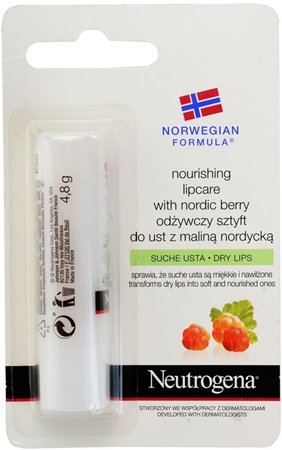
Closing Thoughts
Neutrogena Nordic Berry Lip Balm transcends ordinary lip care to deliver an unparalleled experience. Blending the nourishing essence of Nordic berries with dermatologist-approved science, it offers year-round hydration, protection, and repair. For anyone seeking soft, healthy lips, this balm stands unrivaled in its category.
-
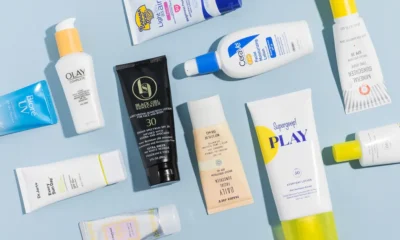
 Skin10 months ago
Skin10 months agoNatural Oil-Free Face Moisturizer Reviews & Buyers Guide
-
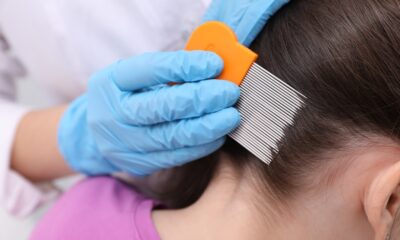
 Hair2 months ago
Hair2 months agoDoes a Flat Iron Kill Lice? Fact or Myth?
-

 Hair10 months ago
Hair10 months agoDoes a Flat Iron Kill Lice? Fact or Myth?
-

 Skin9 months ago
Skin9 months agoAbout Face Beauty: Tips for Enhancing Your Natural Beauty
-

 Skin10 months ago
Skin10 months agoNeutrogena Naturals Multi-Vitamin Nourishing Face Moisturizer Review
-
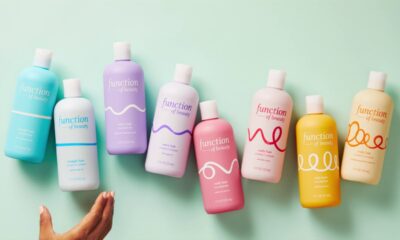
 Hair10 months ago
Hair10 months agoFunction of Beauty: Personalized Hair Care for Your Unique Needs
-
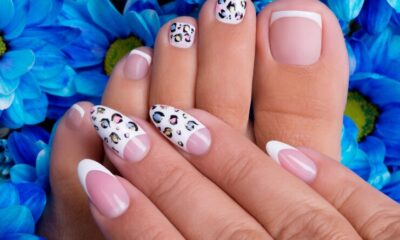
 Skin9 months ago
Skin9 months agoBeautiful Nails: Tips and Tricks for Healthy and Gorgeous Nails
-
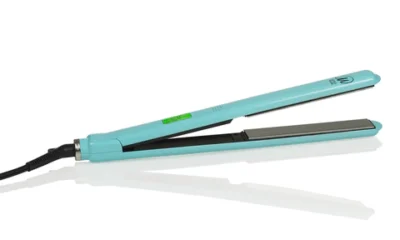
 Hair10 months ago
Hair10 months agoTitanium Flat Iron vs. Ceramic
